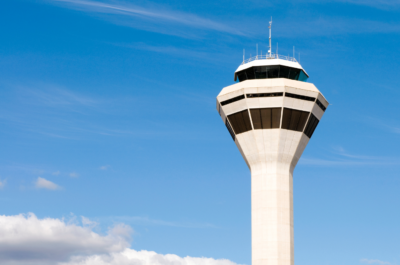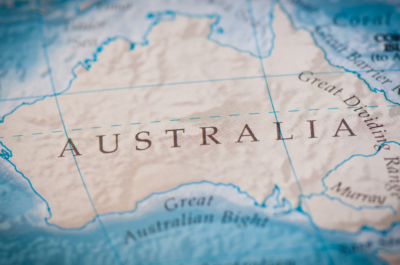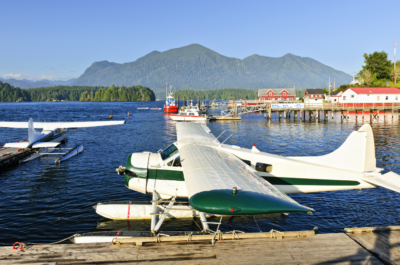157 airports worldwide are currently certified at one of the 4 levels of Airport Carbon Accreditation. 21 airport operators are carbon neutral – the latest is Izmir Adnan Menderes airport in Turkey; 33% of air passengers worldwide now travel through airports certified under the programme.
BRUSSELS, HONG KONG, CACABLANCA, WASHINGTON DC, PANAMA and MONTREAL: Following the signature of a partnership between the United Nations Framework Convention on Climate Change (UNFCCC) and the independent carbon management programme, Airport Carbon Accreditation during COP21, provided an update on the latest developments since then and detail some of the new entrants and achievements by airports worldwide.
The Airport Carbon Accreditation programme certifies airports at 4 different levels of accreditation covering all stages of carbon management (Mapping, Reduction, Optimisation and Neutrality). It is independently administered, institutionally-endorsed? and has the support of the United Nation Environment Programme (UNEP), the International Civil Aviation Organisation (ICAO), the European Union (EU) and others. At this time, Airport Carbon Accredited status has been earned by a total of 157 airports across the world.
Angela Gittens, Director General, ACI World commented “An impressive 2 billion air passengers now travel through airports certified at one of the 4 levels of the programme – equivalent to 33% of global air passenger traffic. With over 100 airports now engaged in Airport Carbon Accreditation, Europe is in the lead on carbon management, but other parts of the world are ramping up their efforts as can be seen from the strong momentum in Asia-Pacific and North America and growing interest in Latin America & Caribbean and Africa. Airport Carbon Accreditation is clearly empowering airports across the world to address their impact on climate change.”

Regional breakdown of 157 carbon accredited airports worldwide.
Extraordinary engagement in Europe
Building on the global airport industry’s commitment to reduce its carbon emissions made 9 years ago, at the COP21 climate negotiations in December last year the European airport industry committed to increase the number of carbon neutral airports in Europe from 20 to 50 by 2030.
Izmir Adnan Menderes airport has achieved Level 3+ Neutrality, making it the 21st carbon neutral airport in Europe (and the World). Additionally, 84 other European airports are now certified at one of the 3 other available levels within the programme.
Olivier Jankovec, Director General ACI Europe commented “We are delighted for TAV and their team at Izmir Airport and congratulate them on becoming the latest carbon neutral airport in Europe. Most promisingly we are seeing a lot of airports moving up the levels of the programme as they strive to get closer and closer to carbon neutrality. There are now 20 European airports at Level 3 Optimisation – the level just before carbon neutral status – and they welcome over 29% of European air passengers.”
Since COP21, Europe has welcomed all 10 French airports in the VINCI Airports group and a further 4 new airports into the programme: Aeroport de La Rochelle, Riga Airport, Sofia Airport, Keflavik Airport and Lithuanian Airports’ Vilnius Airport have entered the programme at Level 1 Mapping.
Asia-Pacific keeps rising
There are now 31 airports certified in Asia-Pacific and most recently, Gimpo international Airport became the 10th airport to reach Level 3 Optimisation. In parallel, Hong Kong International Airport became the first one in the region to successfully renew its certification for 3 years. The airport was already the first in the region to be certified at Level 3 Optimisation (in 2013), having successfully reduced its own CO2 emissions and engaged 45 companies on the airport site to do the same.
At last month’s ACI Asia-Pacific 11th Regional Assembly, Conference & Exhibition in Gold Coast, Australia, Sharjah International Airport received recognition for its successful move from Level 1 Mapping to Level 2 Reduction while Queen Alia International Airport (Amman) also achieved an upgrade in its status in the programme, moving up to Level 3 Optimisation.
Patti Chau, Regional Director ACI Asia-Pacific commented “Five years ago, Airport Carbon Accreditation was extended to the Asia-Pacific region. Since then, we have embarked on the journey towards carbon neutrality with our members. Today, we are proud to have 31 Asia-Pacific airports accredited at various levels of the program, representing more than 26% of passenger traffic in the region. I encourage more members to become Airport Carbon Accredited and demonstrate our airports’ dedication to sustainable growth.”
Recent new entrants include Taoyuan International Airport at Level 2 Reduction. Meanwhile Vinci Airport‘s 3 airports in Cambodia Phnom Penh International Airport, Siem Reap International Airport and Sihanoukville International Airport and Doha’s Hamad International Airport all recently started their journey to active carbon management, becoming accredited at Level 1 Mapping.
In all, the 31 certified airports in the Asia-Pacific region currently account for 26.9 % of air passenger traffic in Asia-Pacific.
13 airports in less that two years in North America
It’s less than 2 years since the programme was launched in North America, but already 13 airports have become certified by the programme in this region – including Dallas Fort Worth International and San Francisco International, both recently certified at Level 3 Optimisation. Meanwhile, Denver International and Toronto-Pearson successfully made it to Level 2 Reduction while Honolulu International, Winnipeg Airport and Greater Moncton Airport became certified at Level 1 Mapping.
Kevin Burke, President & CEO, ACI North America commented “With so many airports in our region applying to the programme in the past 18 months, it’s clear that the North American airport industry is taking significant steps to becoming leaders in environmental stewardship. We look forward to more airports joining the programme in the year ahead.”
In all, the 13 certified airports in the North America region currently account for 17.9% of air passenger traffic in North America.
Africa
In Africa, 2 new airports have come on board in Gabon and Ivory Coast. Libreville Leon Mba International and Felix Houphouet Boigny Abidjan International Airport have both successfully entered the programme at Level 1 Mapping. This brings the total number of African airports in the programme up to 3.
Ali Tounsi, Regional Director, ACI Africa commented “The pioneering African airports in the programme so far are demonstrating to others in Africa and the wider world that carbon management is a valid consideration for every business no matter where they are located.”
Latin America
In addition, the programme has now certified 4 airports in Latin America and Caribbean, where the pioneering airport in the region – Puerto Vallarta International – has just successfully moved up to Level 2 Reduction.
Javier Martinez Botacio, Director General, ACI Latin America & Caribbean commented “We are encouraged by the interest in Airport Carbon Accreditation in our region and look forward to seeing others following the example set by the 4 airports already in the programme here.”
The full results for Year 7 of the programme (June 2015 to May 2016) including the carbon reduction achieved, will be released at this year’s ACI Europe Annual Assembly, Congress & Exhibition, in Athens from 20 to 22 June.
Photo caption: Representatives of Carbon Accredited Airports in Asia-Pacific at the recent ACI Asia-Pacific Regional Assembly in Gold Coast Australia.
Theodore is the Co-Founder and Managing Editor of TravelDailyNews Media Network; his responsibilities include business development and planning for TravelDailyNews long-term opportunities.






























































